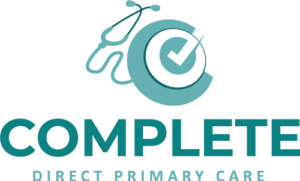What is Direct Primary Care
Direct basic Care (DPC) is a novel alternative payment model for basic care that is gaining acceptance among US politicians, payers, employers, providers, and patients. A patient’s long-lasting and reliable relationship with his or her primary care physician is what makes DPC unique.
Average doctor face-to-face visits last 8 minutes. |
Extended appointment times for more thorough care: DPC physicians prioritize quality over quantity, allowing patients to enjoy longer office visits. This extra time fosters in-depth discussions, better understanding of health concerns, and thorough physical examinations. Patients never feel rushed, which can lead to more accurate diagnoses and more effective treatment plans.
No more leaving voicemails and not hearing a response. |
Direct access to your primary care physician: With DPC, patients have direct and continuous communication with their primary care doctor, often through phone, email, or text. This close doctor-patient relationship allows for quicker responses to health inquiries, medication adjustments, and a more personalized approach to healthcare.
Cost of submitting and refuting claims to insurance is a significant part of a physician’s overhead cost. |
No insurance claims or copayments: DPC eliminates the need for traditional health insurance for primary care. Instead, patients pay a monthly fee directly to the DPC practice. This fee typically covers all routine primary care services, reducing the paperwork and complexity associated with insurance claims. Additionally, there are no copayments for office visits, making it easier for patients to access care when needed.
Waiting times of 6 weeks or more commonly seen to make an appointment with a standard insurance-based physician. |
Same-day or next-day appointments: DPC practices prioritize prompt access to care. In many cases, patients can schedule same-day or next-day appointments, reducing wait times and ensuring that health issues are addressed promptly. This quick availability can be particularly valuable for managing acute conditions or concerns.
Non-rushed appointments allow for appropriate time for preventative care. |
Enhanced focus on preventive care: DPC places a strong emphasis on proactive health and wellness. Primary care physicians have more time to discuss preventive measures, such as vaccinations, screenings, and lifestyle changes. This focus on prevention can lead to better overall health outcomes and reduced healthcare costs over time, as it helps identify and address potential health issues before they become major concerns.
For the price of dinner out with the family or a telephone bill you have access to your very own physician. |
Reduced healthcare costs for patients: DPC often offers a cost-effective alternative to traditional primary care. By cutting out insurance overhead and administrative costs, DPC practices can keep monthly fees reasonable. Patients benefit from predictable, transparent pricing, making healthcare more affordable and allowing them to budget effectively for their primary care needs.
More time for appointments allows for the development of a strong relationship between physician and patient; truly increasing the value of the healthcare provided. |
Personalized and patient-centered care: DPC physicians have the time and flexibility to truly get to know their patients. They can tailor treatment plans to individual needs and preferences, incorporating patient input into decision-making. This personalized approach not only improves the patient experience but also helps achieve better health outcomes.
A lot of ailments can be remedied without the need for a face-to-face encounter. That also improves infection transmission risk, which the importance of was taught by Covid-19. |
Access to telemedicine services: Many DPC practices offer telehealth or virtual consultations, expanding access to care. Patients can connect with their primary care physician remotely, making it easier to address health concerns, receive follow-up care, and access medical advice, particularly in remote or urgent situations. This convenience is especially beneficial in today’s interconnected world.
Not taking insurance frees up a lot of resources to dedicate directly to patients. |
Lower administrative overhead: DPC practices streamline administrative tasks, reducing the burden of paperwork and insurance-related matters on both the healthcare provider and the patient. This efficiency allows doctors to allocate more of their time and resources to direct patient care, resulting in a more focused and patient-centered healthcare experience.
Honestly, it is not possible in the current system of appointment on top of appointment being the only way for a physician to have a business income. |
Coordination of specialist referrals: DPC physicians often play a pivotal role in coordinating referrals to specialists when needed. They have the expertise to identify appropriate specialists, communicate with them on the patient’s behalf, and ensure a smooth transition between primary and specialized care. This coordination helps patients navigate the healthcare system more seamlessly and receive comprehensive, well-integrated care.
Address
1325 North Rose Drive, Suite #100 Placentia, CA 92870
